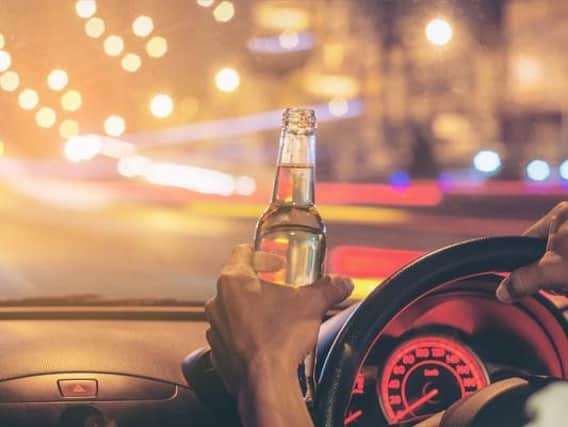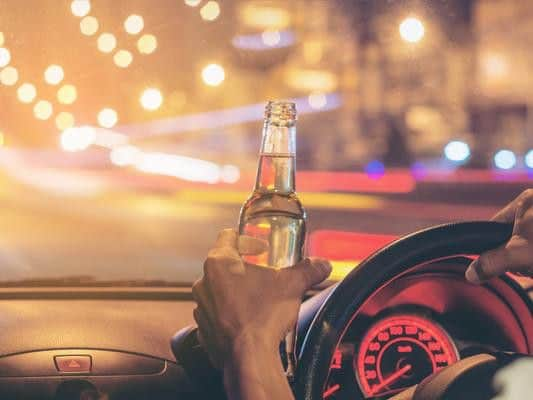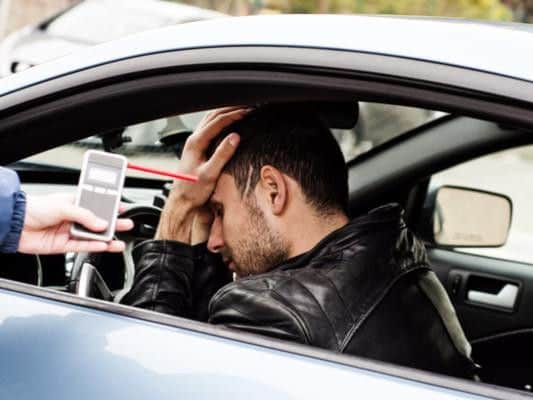What is the drink drive limit and how many alcohol units can I legally drink before driving?


If you have a night out organised and are planning on having a few drinks, it's important to be aware of the limits so you don't put yourself or others at risk of an accident by getting behind the wheel.
What is the drink drive limit in the UK?
The drink drive limit in the UK differs depending on where you are based, with Scotland having different guidelines to the rest of the UK.


Advertisement
Hide AdAdvertisement
Hide AdIn England and Wales, the limit for drivers is 80 milligrammes of alcohol per 100 millilitres of blood, 35 microgrammes per 100 millilitres of breath, or 107 milligrammes per 100 millilitres of urine.
In Scotland, the limit is lower at 50 milligrammes of alcohol per 100 millilitres of blood, 22 microgrammes per 100 millilitres of breath, or 67 milligrammes per 100 millilitres of urine.
How many alcohol units are in a drink?
One unit measures 10ml, or 8g of pure alcohol, and takes the average adult around one hour to process before there is none left in their bloodstream.


One pint of strong lager or a large glass of wine can contain more than three units of alcohol.
Advertisement
Hide AdAdvertisement
Hide AdThe amount of alcohol you need to drink to be considered above the driving limit varies from person to person, and is influenced by the following:
- your weight, age, sex and metabolism (the rate your body uses energy)
- the type and amount of alcohol you are drinking
- what you have eaten recently
- your stress levels at the time
How does alcohol affect driving?
Alcohol can impair many of the functions that are essential for driving safely, with Drinkaware warning it can cause:
- the brain to take longer to receive messages from the eye
- the processing of information to become more difficult
- instructions to the body's muscles to be delayed, resulting in slower reaction times
Advertisement
Hide AdAdvertisement
Hide Ad- blurred and double vision, impairing your ability to see things clearly while driving
How long does it take for alcohol to leave your system?
Alcohol is generally removed from the bloodstream at an average rate of one unit per hour, although this will vary from person to person.
A person's size and gender will influence the speed of this process, with men typically processing alcohol quicker than women.
If you know you are going to be driving the following day, it is advised to:
Advertisement
Hide AdAdvertisement
Hide Ad- opt for lower strength drinks - 4% ABV or lower beer; 12% ABV or lower wine and small measures (125ml); single spirit measures rather than doubles
- alternate alcoholic drinks with soft drinks or water
- stop drinking alcohol before the end of the night so your body has time to process the alcohol before the following morning
Drinkaware advise avoiding alcohol completely the night before you have to drive to be safe.
What is the penalty for drink driving?
There are a number of penalties you could be faced with for drink driving, depending on the seriousness of the offence.
Advertisement
Hide AdAdvertisement
Hide AdBeing caught above the legal alcohol limit while driving can land you with a £2,500 fine and three months imprisonment, as well as a possible driving ban.
Other penalties include:
- Driving or attempting to drive while above the legal limit or unfit through drink can result in six months imprisonment, an unlimited fine and a driving ban for at least one year (or three years if convicted twice in 10 years)
- Refusing to provide a specimen of breath, blood or urine for analysis can result in six months imprisonment, an unlimited fine and a ban from driving for at least one year
- Causing death by careless driving when under the influence of drink can result in 14 years imprisonment, an unlimited fine, a ban from driving for at least two years, and an extended driving test before your licence is returned
Advertisement
Hide AdAdvertisement
Hide AdA conviction for drink driving would also cause your car insurance costs to increase significantly, and if you drive for work, your employer will see the conviction on your licence.
Read more on driving